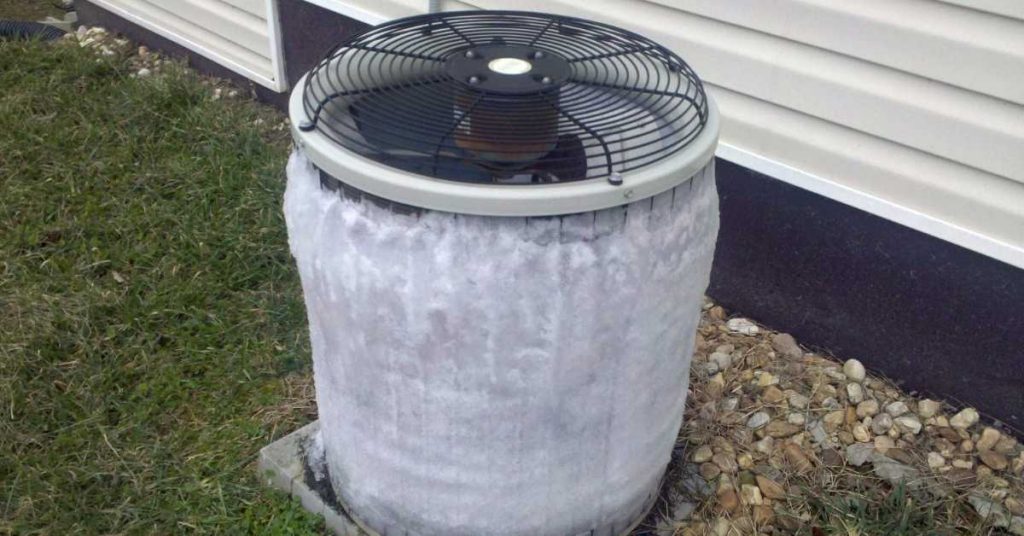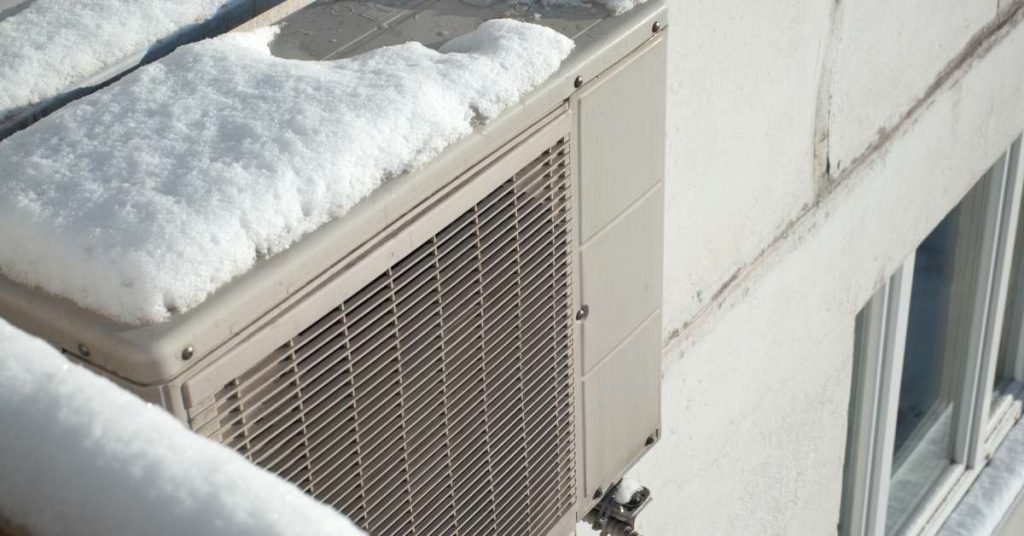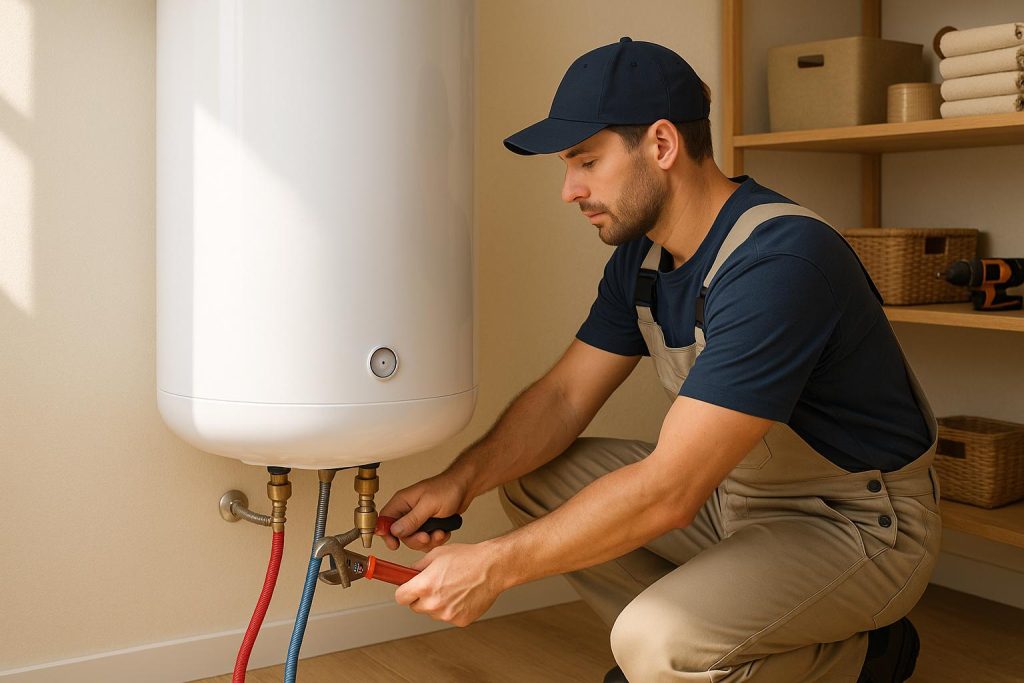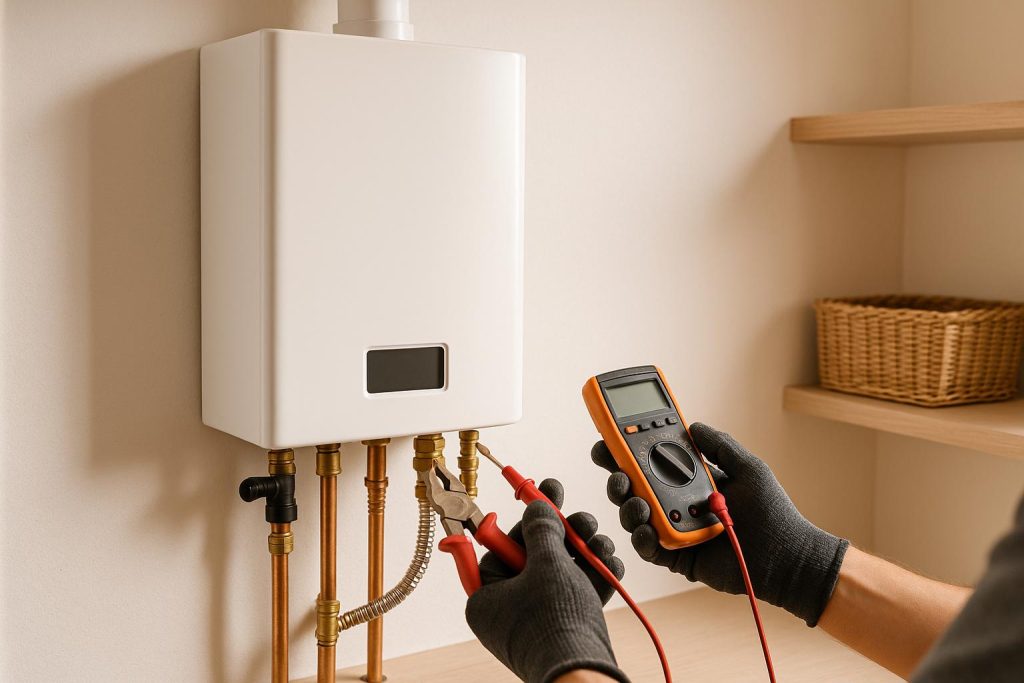
If your AC unit freezes up at night, you’re in the right place.
Experiencing an air conditioner that only freezes at night? Understanding the underlying causes and knowing how to address them is crucial for maintaining your AC system’s functionality and comfort. Here’s a summary of why your AC may freeze only at night and what steps you can take to resolve the problem:
Before we jump in: If you want a free quote from a local HVAC company to come check out your issue, you can always request info below:
Causes of Nighttime AC Freezing
- Lower Ambient Temperature: At night, the outdoor temperature typically drops, causing the evaporator coils inside your AC unit to become colder. If your AC system is not equipped to handle this temperature change, it can lead to ice formation on the coils.
- Increased Humidity: Nighttime often brings higher humidity levels, which can contribute to condensation on the evaporator coils. When this moisture freezes, it can result in ice buildup.
- Thermostat Setting: If your thermostat is set too low at night, it may run the AC system continuously, causing the evaporator coils to become excessively cold and prone to freezing.
What to Do When Your AC Freezes at Night
- Turn Off the AC: If you notice that your AC is freezing at night, turn off the AC system immediately. Continuing to run it can worsen the issue and potentially damage the unit.
- Let it Thaw: Allow the AC system to thaw naturally. Do not attempt to chip away the ice, as this can damage the components.
- Adjust Thermostat Settings: Review your thermostat settings, especially those for nighttime operation. Consider setting the thermostat a few degrees higher to reduce the workload on the AC system during cooler nights.
- Check for Airflow Issues: Ensure that there are no obstructions blocking airflow around the indoor and outdoor units. Check and clean or replace air filters to maintain proper airflow.
- Schedule Professional Inspection: If the problem persists, contact a qualified HVAC technician to inspect your AC system. They can check for refrigerant levels, assess the condition of the evaporator coils, and diagnose any underlying issues.
- Consider Upgrades: If nighttime freezing continues to be a problem, consider installing a system with features designed to handle lower temperatures and humidity levels more effectively. Discuss this option with an HVAC professional.
How an Air Conditioner Works
The work of an air conditioner is to remove heat and humidity from indoor air. That is accomplished by a chemical inside the air conditioning components known as a refrigerant.
A refrigerant/coolant is a fluid with a low boiling point that easily changes state from gas to liquid and back to gas again. It is circulated between the 4 air conditioner components namely:
- Evaporator coil
- Compressor
- Condenser coil
- Expansion valve
The evaporator coil is the one found inside the house. It is equipped with a fan/blower which pulls warm air from the house through the return air ducts.

The refrigerant enters the evaporator coil as a very cold liquid. As it moves through the coil, the warm air is forced across the coil by the fan.
The refrigerant absorbs heat from the air and that is how cooling happens. This cooled air is then forced out of the coil and into the house through the supply air ducts.
After absorbing heat from the indoor air, the refrigerant vaporizes, exits the evaporator coil and enters the compressor. Both the compressor and condenser coil are located outside the house so that the heat absorbed by the refrigerant can be released to the surrounding air.
Inside the compressor, the refrigerant is compressed to increase its pressure. When the refrigerant is compressed, its temperature also increases. That is actually a law in thermodynamics (heat transfer).
Due to the difference in temperature between the outside air and the refrigerant, heat can be transferred from the refrigerant to the surrounding outside air.
The high-pressure superheated refrigerant gas exits the compressor and enters the condenser coil. A fan is installed at the top of the condenser coil to accelerate the process of heat transfer.
As the refrigerant moves through the condenser coil, the fan blows cooler air across it, which absorbs heat from the refrigerant and dissipates it outside.
By the time the refrigerant is being ejected out of the condenser coil it will have lost so much heat that it will have condensed to its liquid form.
Although the refrigerant will be a liquid at that time, it will still not be cold enough. And that is where an expansion valve comes in.
As I have mentioned, when the refrigerant is compressed, its temperature increases. When you expand it, its temperature drops. And that is exactly what the expansion valve does.
The expansion valve is a small hole/restriction that the refrigerant is forced through. As a soon as it emerges on the other side, it expands (its pressure drops and its temperature also dips drastically).

When that happens, the refrigerant is now ready to go back inside the evaporator for another round of cooling.
Why Does My AC Freeze Up Only at Night?
What happens at night that doesn’t happen during the day? That will help you in understanding why your AC only freezes up at night and not during the day.
Let us look at 2 of the main causes:
1. Low Night Temperatures
You see, air conditioners are programmed to work within a certain temperature range. When temperatures are outside of that range, the AC unit will not work normally.
If your air conditioner only freezes up during the night, the temperatures during the night are lower than the ideal level which causes the refrigerant pressure to drop. When the refrigerant pressure drops, its temperature also drops below freezing point causing ice to build up on the evaporator coil.
You see, the temperature of the refrigerant at the evaporator coil entry is 32 degrees. When that is the case (optimum operating conditions), the indoor air is cooled by the refrigerant while the moisture in the air (humidity) condenses and drains out through the condensate drain line.
However, when the pressure of the refrigerant drops, its temperature drops below 32 degrees which is the freezing point of water. In that case, the moisture that condenses on the coil freezes instead of draining out. And that is how ice is formed on the AC unit.
Although I have explained this scenario using a central air conditioner, it can happen the exact same way on mini-splits as well as window air conditioners.

2. Low Refrigerant Levels
The air conditioning system is a closed-loop system. Refrigerant levels are thus expected to remain the same but if there is a leak somewhere, the level will drop.
Needless to say, when the refrigerant levels drop because of a leak in the system, the pressure of the refrigerant will also drop. As I have mentioned twice now, when the pressure of the refrigerant drops, the temperature will also drop.
This means that the temperature of the refrigerant as it enters the evaporator coil will be lower than the required 32 degrees. Moisture in the indoor air will therefore condense and ice up on the AC unit’s evaporator.
And that is how low refrigerant levels causes an air conditioner to freeze up at night
3. Other Causes
Apart from a drop in in night temperatures and low refrigerant levels, there are other reasons why your air conditioner could be freezing at night. They include:
- Dirty air filters
- Clogged condensate drain line
- Dirty evaporator coil
- Faulty blower motor
- Blocked/leaking ducts
Air filters should be changed after 90 days or even sooner than that. However, when you fail to change your air filter, it will be badly clogged, restricting the flow of air to the evaporator coil.
Lack of enough air to cool while the compressor is still running will cause the refrigerant pressure to fall below freezing point and hence ice will start building up on the evaporator coil.
It is also the same that that will happen when the air ducts are leaking/blocked or when the blower/fan is faulty/damaged. Not enough warm air will reach the evaporator coil, causing the refrigerant temperature to fall ultimately resulting in freezing.
When the condensate drain line is clogged, the drip tray will overflow with water and when it comes into contact with the cold coil, ice will start to buildup and if the problem is not fixed the entire coil will be covered in ice.
A dirt evaporator coil cover will also restrict warm air from getting into contact with the cold coils for maximum heat exchange. When that is the case, the temperature of the refrigerant will fall below 32 degrees resulting in freezing of the coil.
How to Prevent an Air Conditioner from Freezing up at Night
One of the ways you can stop your air conditioner from freezing up at night is by turning it off. If the temperatures outside are too low, you probably don’t the AC at night.
If that is not an option, you can consider installing a programmable thermostat. A programmable thermostat will turn off the AC where temperature drop say below 60 degrees and turn it on when conditions outside improve.
The best way however to prevent your AC unit from freezing up is by scheduling regular maintenance by a qualified HVAC technician. That way, you will be able to stay ahead and diagnose AC problems before they get worse.
An HVAC technician will inspect the ductwork for leaks, clean the ducts, inspect the condensate drain line, clean the AC coils, perform AC tune ups, change air filters, and check refrigerant levels among other things.
You however don’t need to pay for a technician to change air filters for you. This post will show you how to locate and change your AC filter on your won.
Still experiencing your AC unit freezes up at night?





